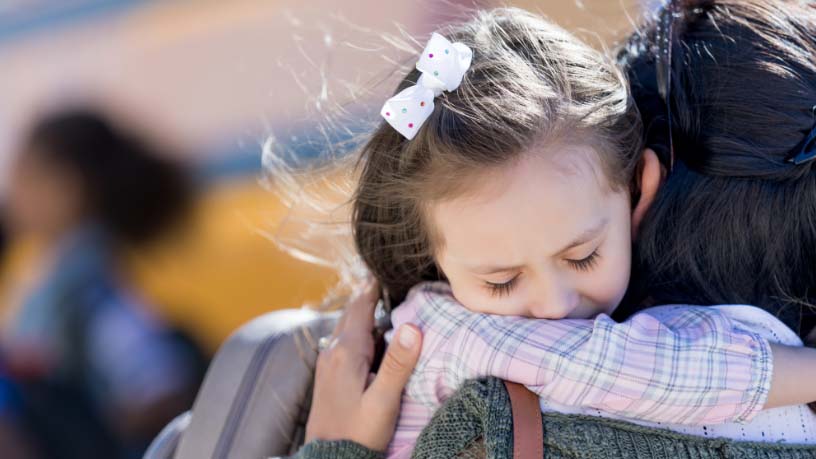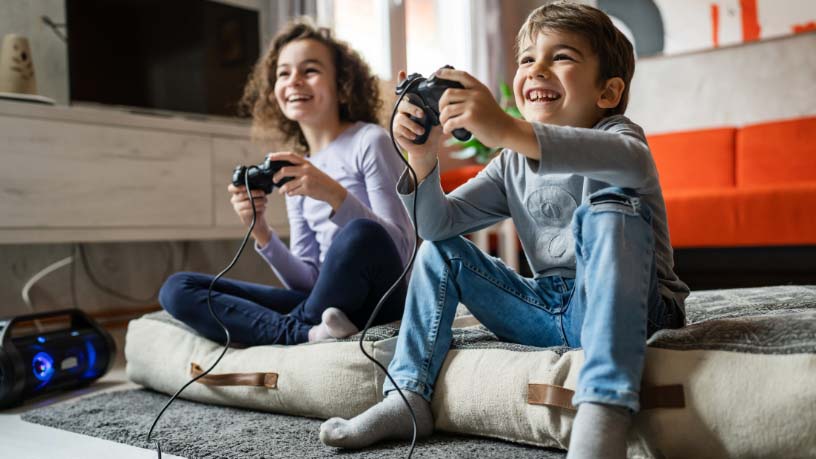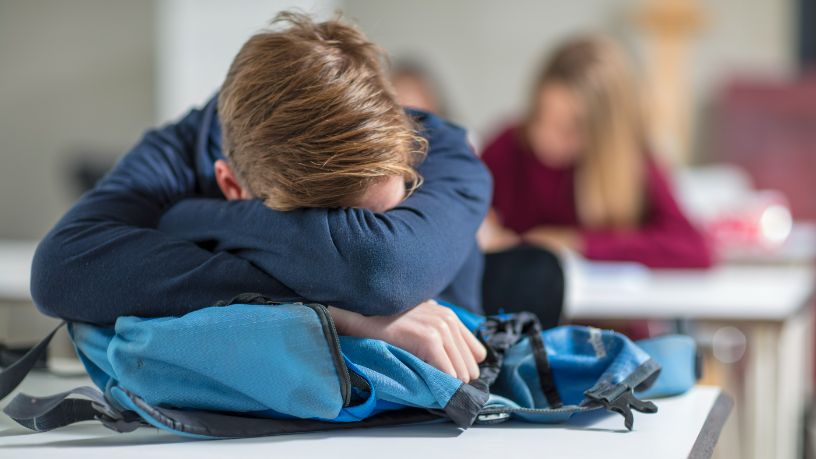Talking to your child about social media can help them better navigate it.
Key takeaways
Discover helpful ways to set guidelines around screen time.
There are benefits and pitfalls of social media, and understanding the risks is an important step in keeping your child safe online.
There’s no denying that social media is an important part of modern life, particularly for young people.
While social media can be a great tool for tweens and teens to connect with friends, there are also downsides. From cyberbullying and the normalisation of risky behaviours like sexting, to straining real-life relationships and breaching children’s privacy, navigating the online world can be tricky.
Here, we look at some of the positive and negative sides of social media, plus approaches for how your child can use it safely.
The positives of social media
When used in a supervised, responsible way, social media can have a range of positive benefits for young people. These include:
- allowing them to access diverse perspectives
- helping provide instant or more accessible support when they’re feeling sad, anxious or having a difficult time
- providing an outlet for them to access a range of educational content
- allowing them to express creativity
- helping them connect and interact with friends and family, particularly when they live far away.
The negatives of social media
Research shows that, as well as smartphone use, social media use can heighten mental distress, including depression, plus self-harming and other detrimental behaviours in young people.1
[Two young boys stand in a photographic studio talking to camera. Text appears on screen asking the boys questions that they answer to camera]
[Text on screen: Today we talk about social media]
Anishwar: You wanna start?
Vihaan: You start!
Anishwar: Okay. My name’s Anishwar, I’m 11 years old.
Vihaan: I’m Vihaan, I just turned 10 this year. I have a nickname called VV or V!
[Monique Watkins, health teacher, talks to camera from the same photographic studio]
Monique: Children are allowed, through their parents, different amounts of social media. So we can see that some students are allowed access, probably earlier than what’s recommended, whereas others are sort of asked to stay off it.
[Text on screen: what are some good things about being online?]
Vihaan: Learning new things.
Anishwar: You can connect and be social with your friends and learn new things like, um…
Vihaan: How to make a paper aeroplane.
Anishwar: And how to solve a Rubik’s cube.
[Text on screen: is everything online good for you?]
Anishwar: Not always.
Vihaan: Yeah, not always, sometimes.
Anishwar: Yeah, maybe it’s not a good idea to comment because you can start cyber-bullying. You can tell a trusted person…
Vihaan: Parents, teachers, Kids Helpline!
[Text on screen: Kids Helpline @ School has conversations like these with young people across Australia every single day. Learn more about our range of topics at school.kidshelpline.com.au]
Both: 1800 55 1800!
While there’s a range of reasons why a person might have a negative social media experience, some common things to look out for include:
Cyberbullying
Cyberbullying can involve harassment, teasing, embarrassment or intimidation through sending, posting or sharing negative, harmful or false content on digital platforms.
Inappropriate content
Children may be exposed to age-inappropriate or explicit content on social media. As well as being illegal, this can be detrimental to their wellbeing.2
Predators
Online platforms carry the risk of children encountering online predators, who may attempt to exploit their vulnerability or engage in grooming behaviours.
Being constantly connected
Excessive social media use can impact sleep and reduce time spent on other important activities, such as physical exercise and face-to-face interactions.3
Negative self-image
Social media often unrealistically portrays other people’s lives. This can lead to a range of negative self-image problems, including disordered eating, social comparison and low self-esteem.4
Privacy concerns
Children might not fully understand the implications of sharing personal information online. This can lead to privacy breaches, identity theft or exploitation. Posting content that includes their real names, photos, locations or other personal information can make them an easy target for predators.
Recommended screen time
Creating boundaries around screen time can be an important part of safeguarding your child from the dangers of social media.
The Australian Government Department of Health and Aged Care recommends:
- no screen time for children younger than 2
- no more than one hour per day of screen time for children aged 2 to 5
- no more than 2 hours per day of sedentary recreational screen time for those aged between 5 and 17 (not including schoolwork).5
How to use social media safely
To ensure that your child is safe online, you may consider:
- setting clear house rules and guidelines for social media use
- establishing open communication about the risks of social media
- using parental controls and privacy settings
- regular monitoring and guidance.
By talking with your child about social media, you may be able to help them:
- differentiate between reliable and unreliable sources
- understand the importance of protecting their personal information
- learn about setting boundaries and managing screen time
- learn the importance of treating others with respect online
- understand that what they see online doesn't always reflect reality.

At Bupa, trust is everything
Our health and wellbeing information is regularly reviewed and maintained by a team of healthcare experts, to ensure its relevancy and accuracy. Everyone's health journey is unique and health outcomes vary from person to person.
This content is not a replacement for personalised and specific medical, healthcare, or other professional advice. If you have concerns about your health, see your doctor or other health professional.
1Abi-Jaoude, E., Naylor, K. T., & Pignatiello, A. (2020). Smartphones, social media use and youth mental health. CMAJ, 192(6), E136-E141.
2McDool, E., Powell, P., Roberts, J., & Taylor, K. (2020). The internet and children’s psychological wellbeing. Journal of Health Economics, 69, 102,274.
3Shimoga, S. V., Erlyana, E., & Rebello, V. (2019). Associations of social media use with physical activity and sleep adequacy among adolescents: cross-sectional survey. Journal of medical Internet research, 21(6), e14290.
4US Public Health Service. (2023.) Social Media and Youth Mental Health. US Public Health Service.
5Australian Government, Department of Health and Aged Care. (2024). Physical Activity and Exercise Guidelines for all Australians. Australian Government.
You might also like...
Bullying: A guide for parents and carers
It’s hard to know what to do when your child is being bullied, or how to recognise the signs in the first place. Check out this guide for some helpful tips.
How to have conversations with kids
It’s like the flick of a switch. Suddenly, your little chatterbox doesn’t want to talk to you anymore. So, what can you do to help your child open up again?
Friendships: The importance of healthy boundaries
We spoke to a psychologist to find out why it’s important for children to make friends and how you can help them set boundaries in their relationships.
Sleep solutions for tired teens
If your teenager is staying up late and wanting to sleep the day away, you’re not alone. Discover some potential sleep solutions for tired teens.





